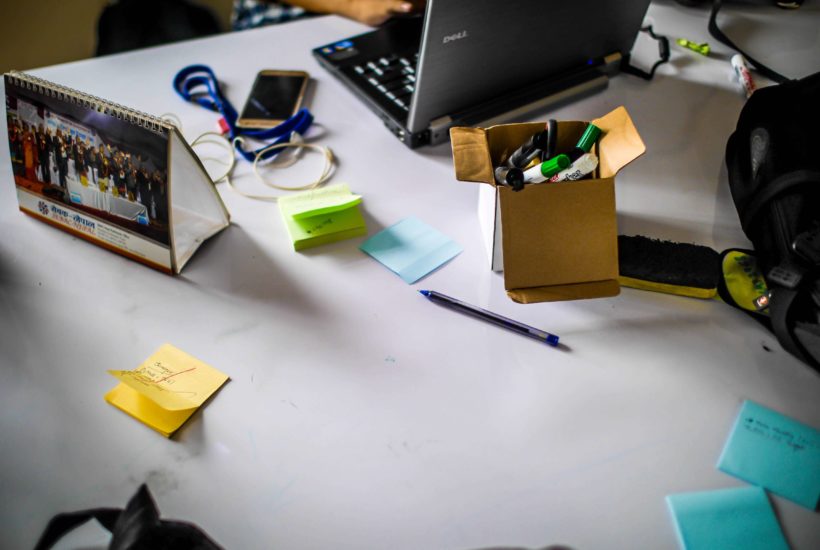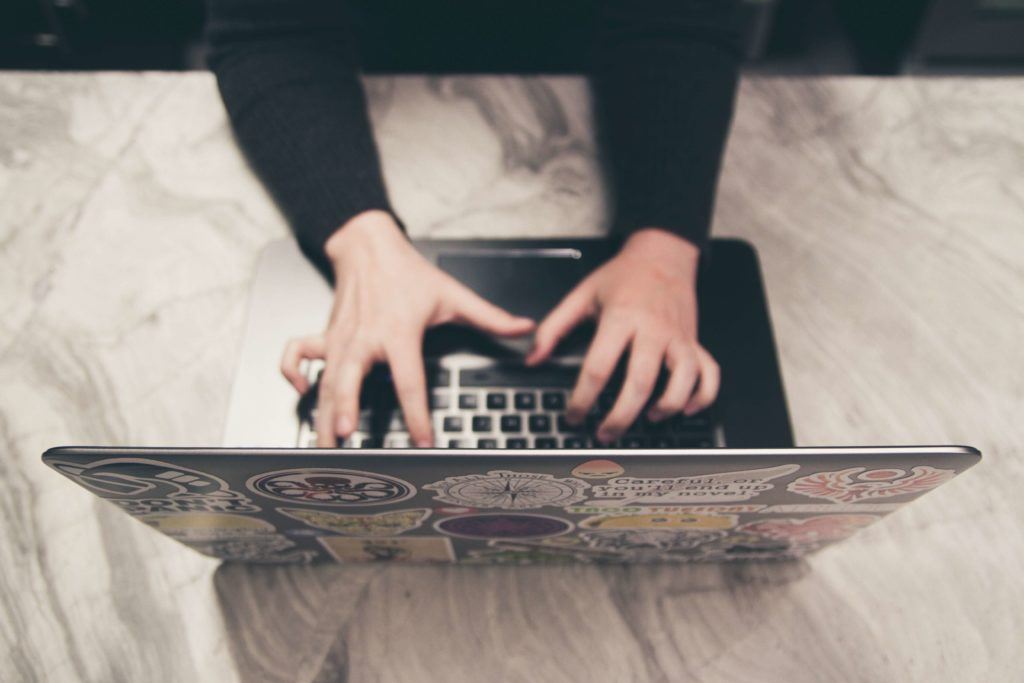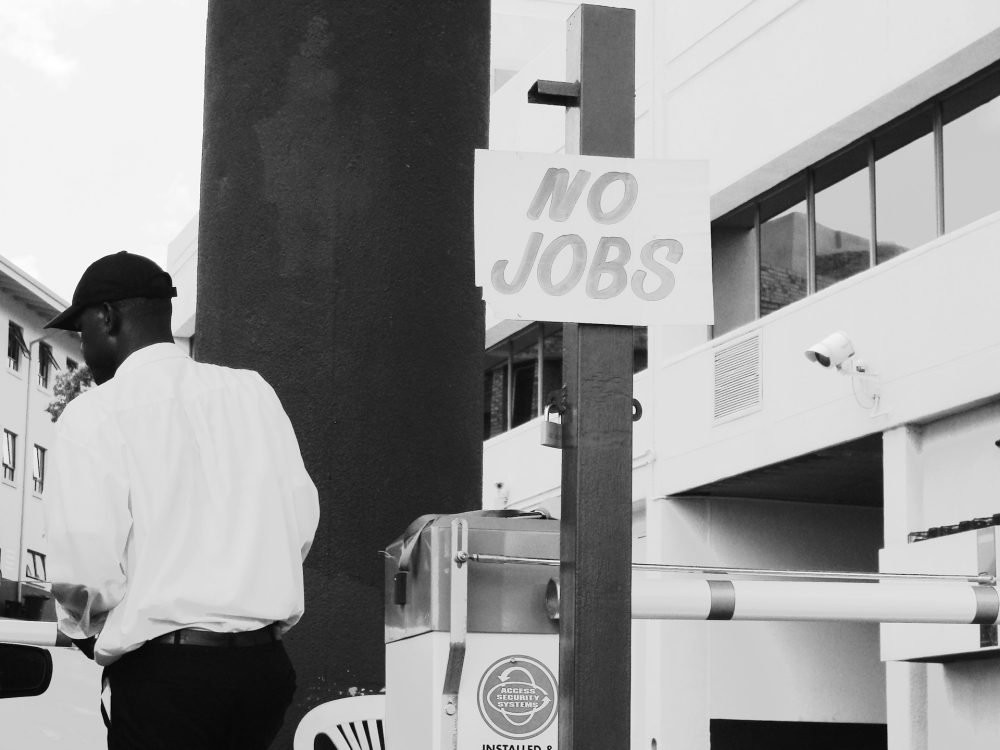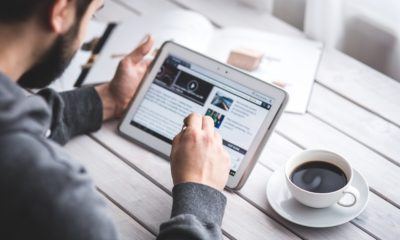Business
12 bad habits that make you less productive
Are you guilty of doing some of these 12 bad habits that ruin your productivity?

There’s a whole host of things many of us are guilty of doing every single day that research shows end up really hurting our productivity. And the more aware you are of how these things are affecting your productivity, the more proactive you can be at taking responsibility for your choices.
So, ask yourself: Are you guilty of any of these bad habits? If so, it may be time to cut it out.
12 bad habits that make you less productive
1. Rushing in the morning.
We all have those mornings where you’re rushing your morning routine and barely have time to brush your teeth before running out the door to make it to the office on time. It’s when the morning rush becomes a habit that there can be negative consequences to your sense of well being and your overall productivity.
If your mornings lack time and space to breathe, try waking up 10–30 minutes earlier and starting off with a quick meditation session. According to a study on the effects of mindful meditation, people who mediated “stayed on tasks longer and made fewer task switches, as well as reporting less negative feedback after task performance.”
2. Skipping breakfast.
When you’re sleeping, you’re fasting — meaning you wake up with low blood sugar. That low blood sugar is exactly why many of us feel tired, apathetic, and even a little irritable first thing in the morning. It’s not you; it’s your inherent need for the sustenance that, you know, keeps you up and running as a human.
Prioritizing a healthy breakfast is a key to boosting productivity for the rest of your day. Try healthy breakfast foods that have the fiber, protein, vitamins, and minerals that’ll give you energy. Foods rich in vitamin B — like oatmeal, bananas, pineapple, and avocados — can help improve your concentration. Avoid breakfast foods with added sugar like sugary cereal, donuts, Pop Tarts, and even bagels.
3. Tackling the easy stuff first.
It can be very tempting to get all the easy tasks out of the way first before tackling the tough stuff. This is especially true when you’re dreading that challenging task. You push it further and further down your to-do list … until you’ve left it untouched for days or even weeks.
But tackling the most difficult tasks on your to-do list early on in the day is actually better for your overall productivity. Researchers have found that willpower is a finite resource that steadily decreases throughout the day so your brain is much better at handling the hardest tasks at the beginning of the day when you’re more focused.
Creating a to-do list is the easiest way to prioritize tasks effectively. Everyone has their own to-do list style, so check out this list of the best to-do list tools and apps out there and see which one works best for you.
4. Checking and responding to emails as they come in.
In an effort to stay on top of a constantly overflowing inbox, it can be tempting to check and respond to every email as soon as it comes in. Receiving email notifications in real time certainly doesn’t help. But constantly switching tasks between work and email can really hurt your productivity.
To help you focus in chunks of time, turn off those pesky email alerts and limit checking your email to specified breaks.
Pro tip: Even when you’re checking email, you don’t have to respond to every single one right away. If you’re worried about forgetting about email, I highly recommend using Andreas Klinger’s method for triaging email in Gmail, which you can read about here.
5. Checking Twitter, Facebook, and your other social feeds.
The whole “easily distracted” thing goes for social media notifications, too. Turns out we actually have a psychological urge to check for social media notifications, which makes it hard to check our News Feeds “just this once” — and usually ends up in a lot of mindless browsing.
As my colleague, Scott Tousley says, “We are madly in love with distracting ourselves.“
My colleague Alec Biedrzycki solves this problem by removing all social networks from his toolbar bookmarks. “Even if I don’t mean to browse them, some uncontrollable impulse subconsciously clicks on them when I experience downtime,” he says. “You can get sucked in without knowing it (or even intending to), so eliminating the gateway to those networks keeps me on track.”
6. Keeping your phone with you at work.
Smartphones are probably the easiest distraction on the planet. And when you keep your phone with you at work, you’re putting your productivity levels at risk.
Why does receiving that text or call hurt our productivity so much? Although the actual moment of interruption is short-lived, our thoughts are disrupted for a considerably longer period, making it tough to refocus.
There are a lot of different ways to curb your phone addiction. The simplest is to turn your phone on silent and put it away while you’re at work.
7. Black hole browsing.
It’s a dangerous side effect of having a job that requires internet research. It’s one thing to mindlessly browse the web outside of work or when you’re on a break. But it’s another entirely when you’re supposed to be doing actual work.
You might feel like getting lost in the black hole is inevitable, but there are tools out there that can help you prevent it from happening. For example, StayFocusd is a Google Chrome extension that breaks the black hole browsing cycle by blocking distracting websites after a set amount of time. You have a set amount of time to browse a certain website per day, and after that time expires, you’ll get this message in your browser. It’s genius, read this blog post to learn how to set it up.

Black hole browsing, or browsing the web when you should be doing actual work hinders your productivity. (Source)
8. Working through your lunch break.
Eating at your desk doesn’t just make you antisocial. According to NPR, it’s also “bad for thinking, bad for creativity, bad for productivity, and bad for your body.” Sadly, though, only one in five people actually leave their desks or the office for a lunch break.
To be fair, if you’re among those people who take lunch at your desk instead of taking a break, it may not be your fault. Perhaps it’s not built into your office culture, or maybe you have a deadline that’s pressuring you to squeeze every waking moment out of your day.
Taking the midday break can be mentally rejuvenating — and, in many ways, more productive than plugging away at your desk between mouthfuls. The best way to take a lunch break is to remove yourself from your desk or workspace and eat somewhere else — like a cafeteria, restaurant, or public park. Better yet, build your network at work by eating with a colleague.
9. Not listening. (Like, really listening.)
One of the sad consequences of being constantly distracted is the epidemic of only half paying attention — and thinking that’s OK. You might think that any time someone else is talking and you’re not, that means you’re listening. But, as my colleague Andrew Quinn wrote in his post on bad conversational habits, it doesn’t. “The real question is who are you listening to when [someone else] is talking,” he wrote. “I’m willing to bet a good portion of the time, you’re actually listening to the voice in your head.”
Not only can not listening carefully cost you relationships, but it can also cost you in the time it takes to make up for whatever information you missed. Becoming an active listener is a critical part of becoming more emotionally intelligent. This means really, truly paying attention to what people are saying — and it’s a skill that’ll set you apart in both your professional and personal life.
10. Saying “yes” to every meeting.
Being “in the zone” is when you lose yourself in whatever you’re doing — so much so that you lose track of time. It’s one of the keys to both happiness and productivity at work.
… And nothing disrupts that flow like a meeting. Especially an unnecessary one. It turns out that the average person wastes 31 hours in meetings per month. These unnecessary meetings are ones where you or the organizer isn’t prepared, you didn’t really need to be there, and so on.
Want to get those 31 hours back? Here are a few suggestions:
-
Be sure you’re only attending meetings you actually need to attend. If you don’t see yourself actively contributing to the group, politely let the meeting requester know that you won’t be able to attend.
-
If you’re the one calling the meeting, send invitees a note, description, or some sort of heads up along with your calendar invitations. This’ll give them an idea of why they were invited or need to be there. Try an app like Do or Solid to help keep your meetings organized and actionable.
-
Schedule meetings in bulk if you can. You can use a tool like HubSpot Meetings (it’s 100% free) to help you get rid of the back-and-forth of scheduling a meeting. This is a strategic way to ensure the time you do have outside of meetings is spent as productively as possible since it takes people an average of 25 minutes to refocus after switching tasks.
11. Multitasking.
Multitasking can seem inevitable in our modern, ever-connected lifestyles. But research shows it can make us less effective, increase mistakes and stress, and costs the global economy an estimated $450 billion every year.
Think you’re an exception? Consider this: Only 2% of the population is capable of effectively multitasking. For the other 98%, all it does is cause us to be 40% less productive and make 50% more mistakes than non-multitaskers.
Getting out of the habit of multitasking is difficult, but certainly doable. Removing notifications from your work computer (see #5) and putting away your cell phone (see #6) are two great ways to start. Other ideas include establishing a no-laptop rule for meetings, using the Pomodoro Technique (where you work in sprints in a way that complements the body’s natural ultradian rhythm), and planning your day in blocks that include built-in breaks.
12. Playing with your phone before bed.
Imagine how much more sleep you could’ve gotten that night if you’d simply gone to bed when you first turned the lights off.
The best way to break this habit? Buy an alarm clock that’s not your phone, and charge your phone in a separate room so you avoid the temptation of checking it altogether. If you’re worried about missing an emergency call, then try sending those last-minute texts 30-60 minutes before you hit the hay. It’ll mean you get more sleep and higher quality sleep, leading you to operate at peak productivity the following day.
What other bad habits hurt productivity? Share with us in the comments.
—
This article was written by Lindsey Kolowich for Hubspot.

-

 Cannabis6 days ago
Cannabis6 days agoCannabis and the Aging Brain: New Research Challenges Old Assumptions
-

 Africa2 weeks ago
Africa2 weeks agoUnemployment in Moroco Falls in 2025, but Underemployment and Youth Joblessness Rise
-

 Crowdfunding4 days ago
Crowdfunding4 days agoAWOL Vision’s Aetherion Projectors Raise Millions on Kickstarter
-

 Fintech2 weeks ago
Fintech2 weeks agoFintower Secures €1.5M Seed Funding to Transform Financial Planning

























